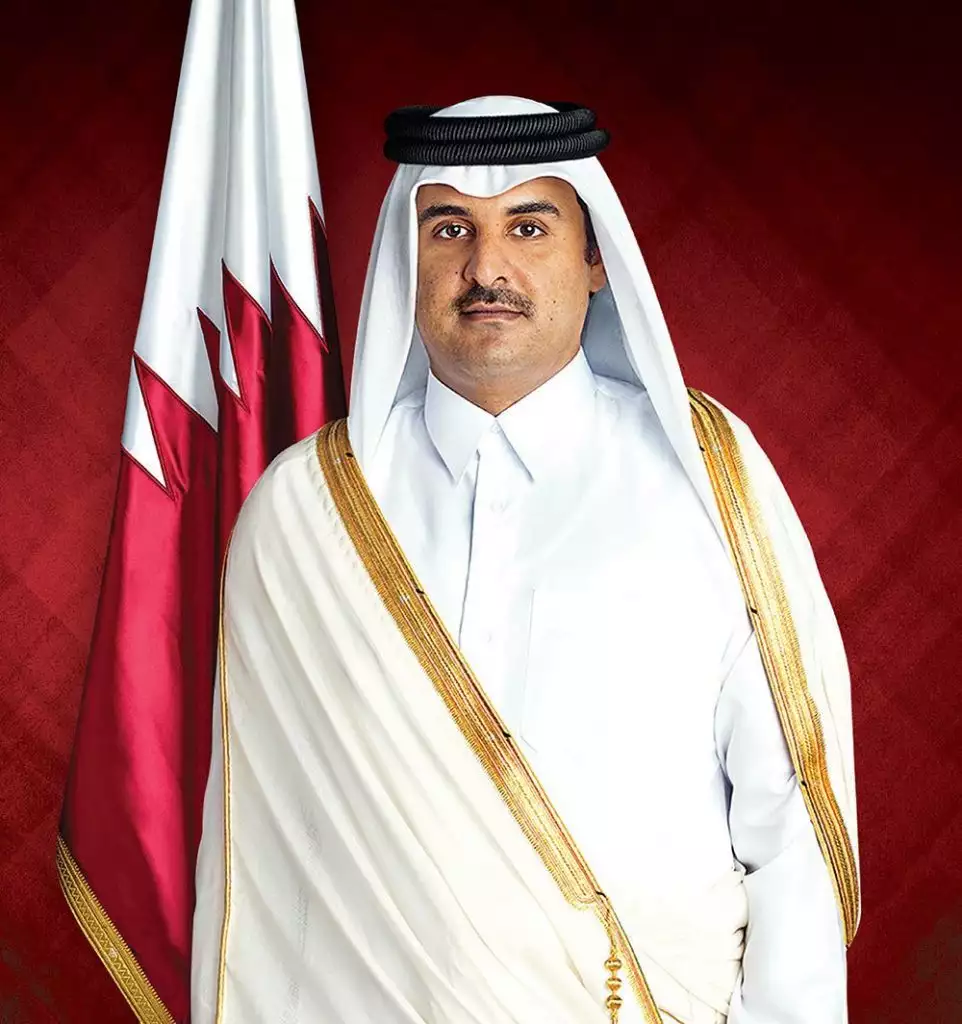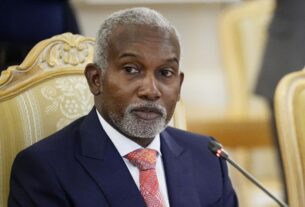Muhammad Bello Shehu
Qatar is a small desert country with a landmass of 4,468 square miles, a small population of 313,000 citizens and 2.3 million expatriates. Qatar is limited by its geographic location as it shares its major land border with a seemingly hostile Saudi Arabia that spearheaded a blockade alongside other neighbors like Bahrain and the United Arab Emirates for three and half years. Qatar also finds itself in the middle of the cold war between the Islamic Republic of Iran and the Kingdom of Saudi Arabia, further constraining Qatar’s options in global affairs. Nonetheless, Qatar is endowed with one of the primary natural resources in the world. With the start of crude production in 1949, Qatar joined other countries in trading one of the most important commodities in global trade. The abundance of crude oil and gas reserves motivated the United States – which is a world superpower – to ally itself with Qatar. This natural occurrences helped transformed Qatar into a key player in global trade and politics.
Seven decades after the production of crude began, Qatar has leveraged crude exports to gain political, economic and even military influence. Qatar is host to the largest U.S. naval fleet outside of the U.S. shores, making it almost impossible for Qatar to be targeted militarily. Qatar has transformed itself into one of the most significant country in the global humanitarian interventions, providing material aid to countries in need. Profits from crude sales was leveraged to position Qatar as a key global finance player providing access to finance to both developing and Arab countries. Qatar has improved its diplomatic scorecard presenting itself as a third party in various negotiations. Qatar bridges the gap between countries like Iran and Saudi Arabia, U.S. and the Taliban, Israel and Palestine, and so on. Qatar has leveraged oil profits to carve a niche for itself in sports and entertainment. It has hosted several tournaments like the Asian cup and the World Cup, which gave the world one of the most memorable football experiences. Qatar’s investments in science and tech, media and entertainment, sports and innovations further position the small country as a major possible gainer of the future global economy. By embracing its weakness and playing to the tune of its strength, Qatar has turned into a global power, so powerful it has survived an economic blockade by one of the strongest geopolitical organization in the world.
Nigeria may learn from the way Qatar has conducted itself in the world. There is a role for every willing actor in global affairs. These roles and functions are unlimited as long as a country’s leaders have a vision and objectives; they are not limited by the size of the population, economy, natural resources, or military might of a country. Non-state actors have also been able to play important roles in international affairs due to the boundless possibilities of these roles. The Swiss leveraged banking and international finance, China its population, Russia its energy resources, Brazil its football talents, Jamaica their track and field athletes, Ethiopia their talents for marathon, and even Nauru, one of the smallest UN member states, used its geographic location to play a major role in Australia’s national security.
The issue with Nigeria is not just defining a role, but also staying committed long enough to maximize its objectives. Nigeria has contributed significantly over the years to world issues that have influenced and formed a key part of world history. There is widespread praise for Nigeria’s contribution to the end of apartheid in South Africa. It is estimated that Nigeria invested over $8 billion in restoring peace to Liberia. In recent times, Nigeria has demonstrated its commitment to upholding democracy in the Gambia and the Ivory Coast. Numerous studies have universally acknowledged Nigeria as one of Africa’s major powers due to its overwhelming influence, political, economic, and military might, as well as its altruistic initiatives for the continent’s liberation, integration, and advancement. Nigeria was one of the leaders of the Non-Aligned Movement, which China and Iran have used to increase their clout and collaboration with developing countries. Nigeria, through the Nigerian Trust Fund at the African Development Bank, continues to support the economic development of the poorest African nations, in spite of its domestic challenges. As previously mentioned, Nigeria’s issues extend beyond defining a role to include a committed path to solidifying the role it plays for the country’s long-term advantage. Nigeria is home to some of the most devoted Muslim and Christian populations that have not yet been fully utilized on the global stage.
Nigeria faces a number of obstacles that make it difficult for it to maintain the gains it has made – or is making – from its involvement in international affairs. This fall into two categories; internal and external challenges. Nigeria faces obstacles on both the domestic and external fronts. The country’s lack of political and economic stability is a hindrance, and it needs to restructure its foreign policy to roll out a clear path in order to achieve its long-term foreign policy goals.
Nigeria requires both economic and political stability. Even though it recently celebrated 25 years of uninterrupted democratic governance, the country’s administrations have largely lacked continuity when it comes to foreign policy concerns, with each one acting independently or even undermining the accomplishments of the previous administration. In less than a decade, President Obasanjo’s achievements in improving Nigeria’s reputation abroad and obtaining debt relief from the Paris Club were substantially undone, with former British Prime Minister David Cameron characterizing the Nigeria’s leaders as ‘fantastically corrupt.’ With the IMF’s 2024 estimates placing Nigeria in a soon-to-be fourth position, President Jonathan’s economic model which rebased Nigeria’s GDP of $500 billion to become the largest in Africa has now been lost. President Buhari’s commitment to establish structural prowess and the infrastructure required to support economic development through different partnerships with multi-national enterprises and strong economies like China and Germany has also lost steam. Consolidating achievements in foreign policy is challenging when these latter accomplishments are not maintained by succeeding administrations.
Nigeria must revive and revamp its foreign policy in order to regain the positive outcomes of the foreign policy approaches of previous administrations on the world stage. In order to address Nigeria’s political stability and maintain economic progress, the new foreign policy objectives must take contemporary realities into consideration. Such a policy will be beneficial to Nigeria’s long-term security and development. Some of the areas that Nigeria needs to emphasize are revealed in a recent interview with the country’s richest man, Aliko Dangote. Dangote stressed the importance of collaborating with the world’s black communities such as in the Caribbean and Nigeria’s diaspora population in Europe and America. The developing world in general offers a wealth of opportunities for Nigeria’s economic development. Regardless of the size and/or standing of the country or organization, these wealth of opportunities must be taken advantage of in the same spirit that China has historically leveraged modest partnerships.
Other important areas where Nigeria can collaborate with the international community are in the areas of counterterrorism, food security, immigration, technology and innovation, energy production, healthcare – which is becoming even more crucial in light of the COVID-19 pandemic, and manufacturing – which enables the world’s population and small economies to access essential goods and services. Nigeria has also demonstrated its capacity to support international peace initiatives through peacekeeping missions, which is something that seems to be becoming more and more crucial in the wake of the wars in Gaza and Ukraine.
In December 2023, the Minister of Foreign Affairs, Ambassador Yusuf Tuggar, unveiled the 4D foreign policy approach. The four pillars of the doctrine are Democracy, Development, Demography and Diaspora. This approach can direct Nigeria’s foreign policy goals toward long-term security and prosperity, but the country’s top diplomat must make sure that it endures through succeeding administrations and that there is a clear path to consolidate the achievements. Based on his 4D doctrine, which emphasizes the significance of the diaspora, Nigeria’s Foreign Minister must prioritize cooperation with black organizations and multi-nationals in areas that will improve FDI and Nigeria’s economy. The foreign ministry has been fortunate enough to have a resource diaspora officer who has worked hard to create a platform for utilizing the potential that the diaspora community presents. According to the Dangote interview, Nigeria, like China, has to increase its cooperation with smaller countries in order to create a shared development partnership. Just as the Foreign Minister hinted when he unveiled his 4D doctrine, the Africa Continental Free Trade Agreement (ACFTA) is crucial. Ambasador Tuggar must take advantage of China’s infrastructure financing, as provided through the Belt and Road Initiative, to build the physical infrastructure – like regional highways, seaports, airports, and railways – that the ACFTA requires. Nigeria’s economic development would have opportunities from an EU-style integration in Africa, thus, the Minister must remain committed to such objectives. The Minister needs to be focused on achieving results and stay away from the ‘talk without walk’ mentality that has plagued Nigeria’s political leaders. Finally, it is imperative that the Foreign Minister ensures Nigeria does not squander any more time and opportunity in joining the BRICS, a leading development partnership that includes some of the world’s largest developing economies.
(belloshehukontagora@gmail.com)



